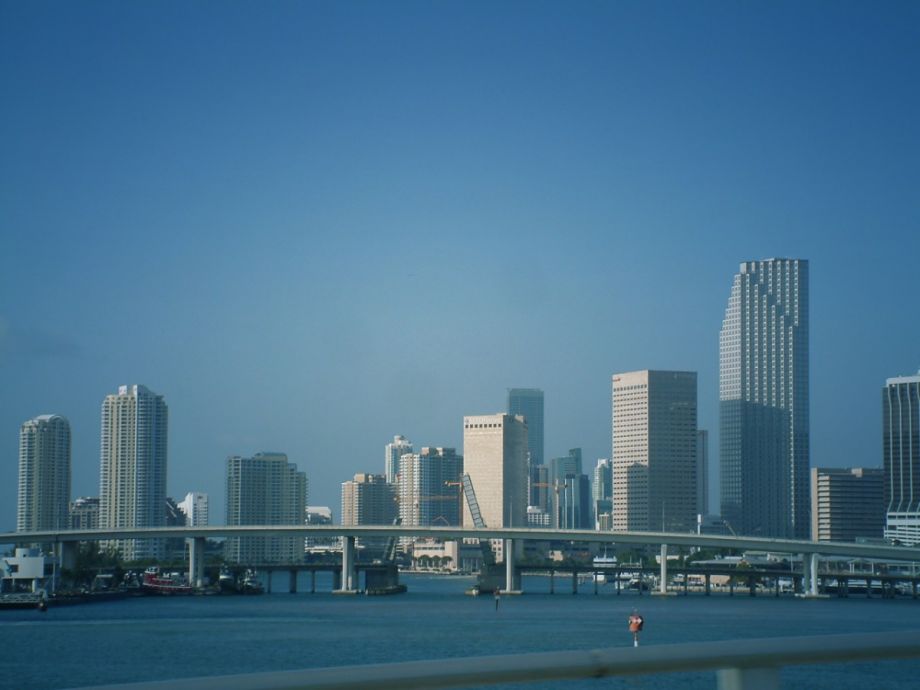Our weekly roundup of new and newsworthy transportation projects around the world.
Uber Launches Illegally in Miami
Uber and Lyft aren’t legal in Miami-Dade County, according to regulators, but the smartphone-dispatched cab companies aren’t letting that stop them. Lyft started offering rides in Miami two weeks ago, and Uber reportedly launched its low-cost UberX service last week, offering $200 worth of rides to each person as a promotion through most of June.
Uber tried to lobby leaders in Miami and Tallahassee to open up to the 21st-century taxi service, but to no avail. (Miami takes taxi regulation farther than many cities, forbidding livery-like services by imposing a minimum of one hour between calling and pick-ups, and a minimum fare of $70.)
And then there’s Houston, where the cab industry is far more regulated than the real estate industry. City Council put off a vote last week on rules that would legalize services like Uber and Lyft. The Houston Chronicle calls the lobbying fight one of the city’s most intense this year.
Uber and Lyft have been operating illegally in Virginia according to the state’s DMV, which sent cease-and-desist orders to Lyft and Uber last week.
Saudis Push Forward on First Desert High-Speed Rail
Saudi Arabia has invested in its roadways and air networks for generations, but in recent years, the House of Saud has discovered the virtues of rail, and is building out its network — from high-speed railways to metros — at a fast clip.
The country’s flagship project is the high-speed railway from Mecca to Medina via Jeddah (which it says will be the first desert high-speed rail line in the world), connecting the kingdom’s second-, third- and fourth-largest cities, and ferrying pilgrims between the two holy cities on either end.
Mecca already has one metro line that sees massive crowds during the Hajj, when it carries up to 72,000 people per hour per direction, more than any in the world (and perhaps unique in the world, the line is only open during the week-long Hajj season each year). Mecca is planning many more, while Riyadh has already broken ground on a massive new system. Meanwhile, Jeddah is getting a 108-kilometer light metro network, with three lines planned for completion in 2020.
Still, it remains to be seen if the new infrastructure can move the needle in a country that’s so thoroughly taken to car culture. In the International Railway Journal=, David Briginshaw calls Saudi Arabia’s commitment to rail “breathtaking,” but offers the following caution:
Achieving modal shift to rail is a huge challenge in a country where road and air transport is already well developed and extremely cheap to use. Fuel is almost free-of-charge, as there is no taxation in Saudi Arabia, and there are no restrictions on parking in major cities.
A Tale of Two Flyovers
In Chicago, the local transit authority recently unveiled a plan to build a flyover at a complex flat junction, where northbound Brown Line trains have to stop traffic on three other tracks past Belmont Station. Many complained about the 16 buildings that would have to be razed to make room for the elevated flyover (Tribune architecture critic Blair Kamin penned a somewhat over-the-top column comparing the project to one of Robert Moses’ roadworks), but perhaps the more egregious aspect is the cost.
The authority is pegging the price tag at $320 million, which is more than the $200 million that Tokyo Metro is paying to unclog a flat junction of its own. The one in Tokyo is underground, and involves digging two tunnels in a dense urban environment — a far more challenging task than Chicago’s elevated project.
The Works is made possible with the support of the Surdna Foundation.
Stephen J. Smith is a reporter based in New York. He has written about transportation, infrastructure and real estate for a variety of publications including New York Yimby, where he is currently an editor, Next City, City Lab and the New York Observer.
















